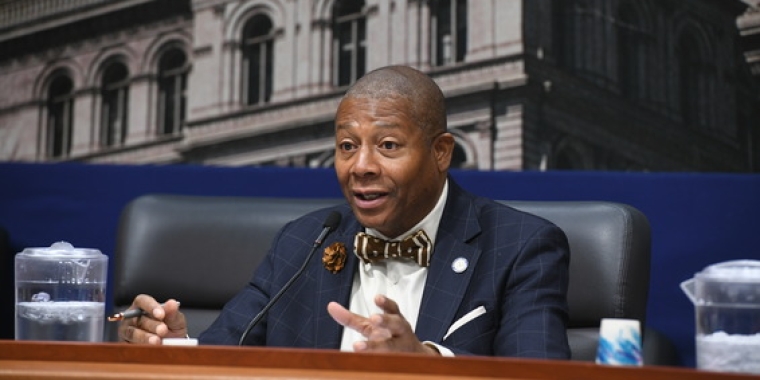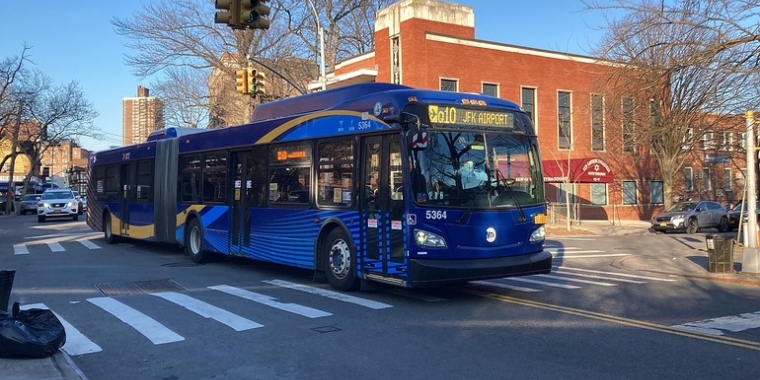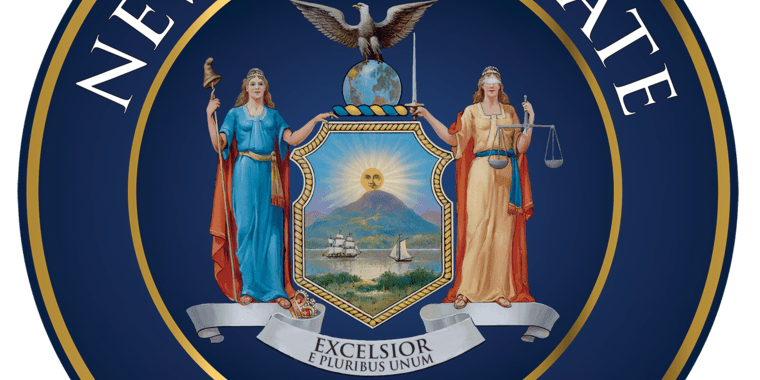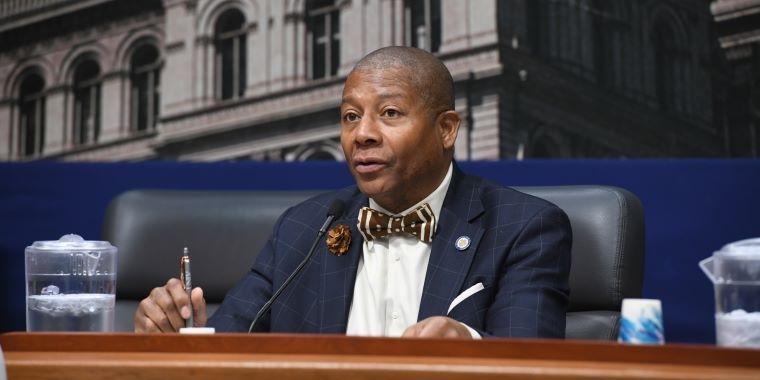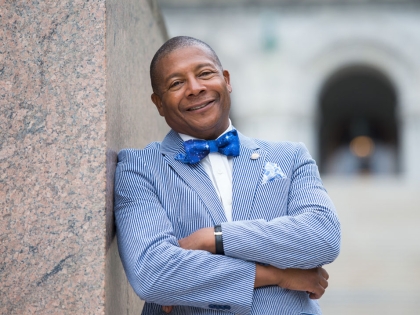
Sanders Hosts Voter Education Forum
May 26, 2016
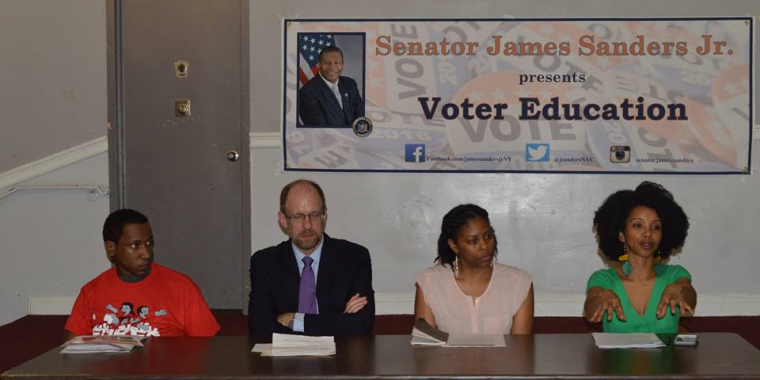
In an effort to re-engage residents in the democratic process, State Senator James Sanders Jr. (D-Rochdale Village) held a voter education forum on Thursday in Jamaica, where expert panelists spoke about voting trends, the differences between primary and general elections, the history of voting rights and more, including answering frequently asked questions about voter registration.
“We are on the verge of a potentially historic presidential election, so what better time than right now to have this important conversation,” Sanders said. “It is our duty and our responsibility as Americans to make our voices heard. We have the power to affect change, but we lose that power when we don’t exercise our right to vote.”
Guest panelist Onida Coward Mayers, Director of Voter Assistance with NYC Votes, a program of the NYC Campaign Finance Board, is charged with conducting voter registration and increasing voter participation. She said election turnout among New Yorkers is often abysmal with the city sometimes being ranked 46th in the nation.
“We know New York always wants to be number one and be at the forefront of everything, but the bottom line is when it comes down to our voting, we just don’t show up,” Coward Mayers said. “There are lots of reasons why, but none of them are very good.”
She said the primary reason is that people are frustrated with the voting system, which she said is antiquated and broken. In order to correct that, the agency hosts a program called Voter Day, where they take members of the public to Albany to speak to legislators about what they want out of the electoral process and how it can be made easier. Some suggestions include early voting, automatic registration, pre-registration of 16 and 17 year olds, same day registration and electronic voter registration.
“We live in a smart phone world, yet everything we do is paper-based when it comes to elections,” Coward Mayers said. “These things must be changed.”
Steven Romalewski, Director of CUNY Mapping Service at the Center for Urban Research, conducts analysis of demographic patterns and neighborhood change. He showed attendees maps which plotted voter patterns. He said these patterns are important because they illustrate changing populations both locally and citywide.
“It’s a reflection of who has power in the city, who can participate in the civic conversation, who officials listen to, and who they don’t, and how that changes what the local patterns are,” Romalewski said.
He added that while most New Yorkers are Democrats, there are also registered Republicans all over the city, however they are primarily concentrated in Staten Island, Southern Brooklyn, and parts of Queens (but not Southeast Queens). Romalewski also went over the criteria one must meet in order to be able to vote such as being a U.S. citizen, age 18 or older, and registered with the Board of Elections.
Michael Higgens Jr., an organizer for Families United for Racial and Economic Equality (FUREE), presented a slide show which detailed the history of voting rights, beginning in the colonial era when the right to vote was limited exclusively to white men who owned property including slaves, through to the Voting Rights Act of 1965, and up until the present day where he opined as to whether the United States is making positive progress forward or going backward. He noted that in 2011 there was a wave of voter suppression laws across the south, which increased the criteria of the ID required to vote. He cited incidents in Texas and North Carolina where a gun license was an acceptable form of ID to register to vote, but a college diversity ID was not.
Higgens also said when it comes to increasing voter turnout among African Americans, the issues that are most important to that population are mass incarceration, access to jobs, family and senior services, affordable and equitable education, and voting rights.
Carmen Dixon, educator and organizer for Black Lives Matter (NYC Chapter), a group that aims to affirm the lives of all black people including those that are the most marginalized, said voting is a tool on the path towards liberation. However, she added that it should not be assumed that everyone who votes is part of the Democratic process, and for that reason it is important to participate in other forms of civic engagement.
“We are not in a democracy, we are in an oligarchy, and so many of the decisions that are made in this country are not based on voting,” Dixon said, “even though at face value there is the assumption that when we go to the polls all of our votes will count as they are cast.”
Lurie Daniel Favors, General Counsel at the Center for Law and Social Justice, an organization which focuses on meeting the legal, political and advocacy needs of African descended communities, gave a presentation on the legacy of voting in Pan-African communities. She noted that over the nearly 200 years before African-Americans got the right to vote, white Americans had already been fine tuning the system, one which was designed to benefit certain people while excluding others.
“It’s like a marathon that has been planned in advance and you just decide to show up on the day of the event to register,” Daniel Favors said. “You’ve already been beaten and you don’t necessarily understand why, because you were not a part of the folks who helped shape the game.”
Daniel Favors explained when it comes to the present generation of Pan-Africans, the idea of voting and whether or not it’s connected to any transfer of power, is not necessarily assumed.
“There is a huge disconnect when I know that Black Lives Matter is more salient to me than Get Out the Vote,” Daniel Favors said. “There is a huge disconnect when I’m more keyed into the resistance movement that is taking place because that is producing more tangible results then my Get Out the Vote colleagues. What we have to do as a community is make up for that nearly 200 years of civic and political illiteracy.”
